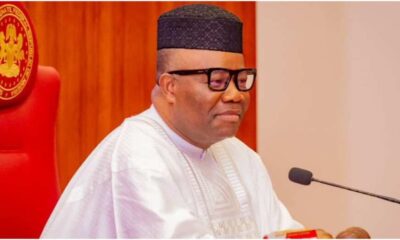The Federal Reserve’s decision to lower interest rates by 0.5 percentage points, bringing the federal funds target range to 4.75% to 5%, was widely expected by economists and market observers.
The September 18 Federal Open Market Committee (FOMC) statement cited signs of steady economic activity but noted that inflation remained somewhat elevated despite progressing toward the Fed’s 2% target.
Job gains had also slowed, and unemployment edged up but remained low. These developments, combined with risks on both sides of the Fed’s dual mandate – maintaining stable inflation and maximizing employment – led to the decision to cut rates to balance economic growth with inflation control.
This rate cut marks a significant shift in the Fed’s monetary policy as it responds to uncertain economic conditions. Lowering the federal funds rate is designed to encourage borrowing and investment by making loans cheaper, but it also has wide-reaching effects on individual financial strategies. Understanding the nuances of rate changes is crucial for those wondering how the Fed’s rate cut will affect their finances.
Understanding the Fed Rate Cut
The Federal Reserve controls the federal funds rate, the interest rate banks lend to each other overnight. A rate cut means it becomes cheaper for banks to borrow money, which usually lowers interest rates on consumer loans such as credit cards, mortgages, and personal loans. By lowering borrowing costs, the Fed aims to stimulate economic activity – encouraging businesses to expand and consumers to spend more.
Historically, rate cuts have been a tool to mitigate economic slowdowns or foster recovery during uncertain periods. In 2020, during the COVID-19 pandemic, the Fed slashed rates to near zero to keep the economy afloat. This current rate cut is an effort to maintain economic growth while keeping inflation under control, and it has significant implications for various aspects of personal finance, from borrowing to saving.
Impact on Borrowing Costs
One of the most immediate effects of the Fed rate cut is its influence on borrowing costs. Interest rates on credit cards, personal loans, and auto loans will likely decrease, allowing consumers to borrow more favorably. If you’re carrying high-interest credit card debt, this could be an ideal time to look for balance transfer offers or debt consolidation options to lower your interest payments.
Savings and Investments
While the rate cut offers potential benefits for borrowers, it comes at a cost for savers. Interest rates on savings accounts, certificates of deposit (CDs), and other fixed-income investments will likely decrease. This means lower returns for those with money in savings accounts or bonds. If you rely on these investments for growth, the reduced interest rates can significantly impact your long-term savings plans
To manage this, consider diversifying your portfolio by moving some of your funds into higher-yielding assets, such as stocks or exchange-traded funds (ETFs), though this comes with increased risk.
Alternatively, investing in short-term bonds might offer slightly better returns while maintaining relatively low risk. Savers should also consider looking into high-yield online savings accounts, which may provide competitive rates, albeit lower than previously, despite the Fed cut.
Mortgage Rates and the Housing Market
The Fed’s rate cut also has important implications for the housing market. Mortgage rates often track closely with movements in the federal funds rate, meaning homebuyers and homeowners could benefit from lower interest rates on home loans. For those with a mortgage, this could be an excellent time to refinance, potentially locking in a lower rate and reducing monthly payments. Lower mortgage rates can also make homeownership more accessible, driving more demand in the housing market.
If you’re in the market for a new home, this rate cut could help you afford a larger mortgage or reduce the total interest you’ll pay over the life of the loan. However, it’s important to note that while lower rates can spur demand in the housing market, they may also push home prices as more buyers compete for a limited supply of properties. Homeowners should weigh the benefits of lower rates against potential inflationary pressures in the housing market.
Inflation and Cost of Living
Although the Fed rate cut aims to stimulate economic growth, it carries potential risks, particularly concerning inflation. While inflation has been trending closer to the Fed’s target of 2%, it remains elevated. A rate cut could stoke inflationary pressures if it stimulates demand to the point where supply cannot keep up. This could result in higher prices for everyday goods and services, increasing the overall cost of living.
If inflation rises, consumers may pay more for groceries, gasoline, and other essentials, even if they save on borrowing costs. Personal finance plans should, therefore, include considerations for rising costs, with budgets adjusted accordingly. While the immediate impact of the rate cut may not lead to runaway inflation, it’s something to monitor over the coming months, especially in sectors like housing, where price increases are often more pronounced.
In the event that the cost of living affects your finances and seeps into your emergency funds, you may need a backup plan for access to cash during emergencies. For instance, if you have to pay an unexpected medical or home repair bill and are short on cash, you could opt for emergency loans through platforms like CreditFresh for quick access to cash.
Actionable Steps for Your Personal Finance Plan
With these changes on the horizon, now is the time to revisit your personal finance plan and make any necessary adjustments.
Consider Refinancing Debt
With lower borrowing costs, this is an excellent opportunity to refinance high-interest debt, whether it’s mortgage, student loan, or credit card. Refinancing could lower your monthly payments and reduce the total amount of interest paid over time.
Manage Your Savings
Given the likely reduction in interest rates on savings accounts, consider shopping around for the best rates or moving a portion of your savings into higher-yielding investments.
Reevaluate Your Investment Strategy
Lower interest rates can mean lower returns on bonds and other fixed-income investments. Diversifying your portfolio into stocks or other growth-oriented investments can help offset this, though be mindful of the associated risks.
Keep an Eye on Inflation
Rising inflation could erode the purchasing power of your money. Consider incorporating inflation-protected assets, such as Treasury Inflation-Protected Securities (TIPS), into your portfolio to hedge against inflationary risks.


 Naira4 weeks ago
Naira4 weeks ago
 News3 weeks ago
News3 weeks ago
 Education4 weeks ago
Education4 weeks ago
 Social Media4 weeks ago
Social Media4 weeks ago
 Technology4 weeks ago
Technology4 weeks ago
 Investment4 weeks ago
Investment4 weeks ago
 Dividends4 weeks ago
Dividends4 weeks ago
 Economy4 weeks ago
Economy4 weeks ago


























